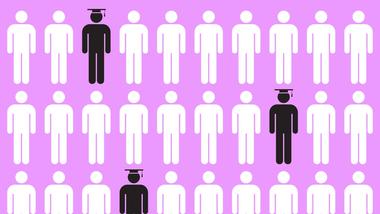
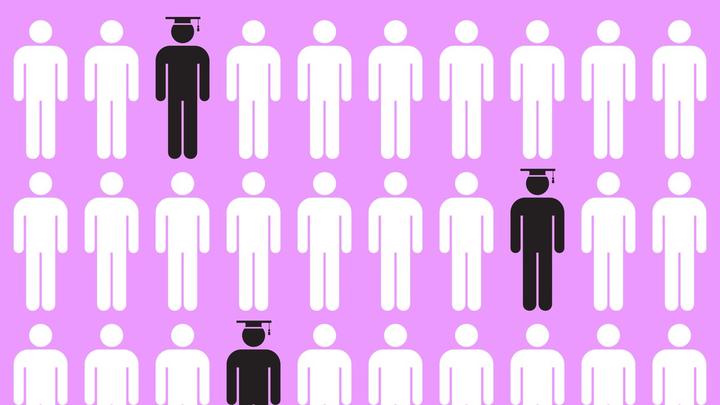
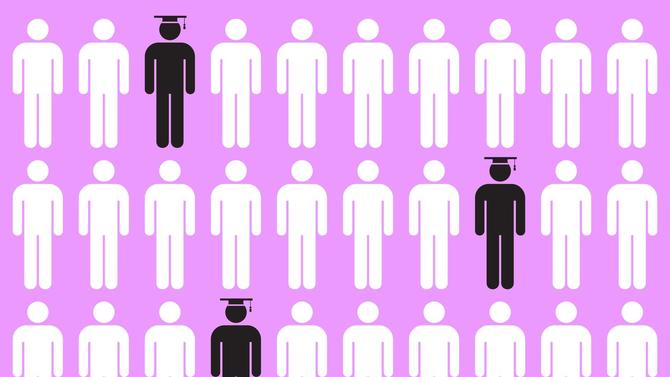
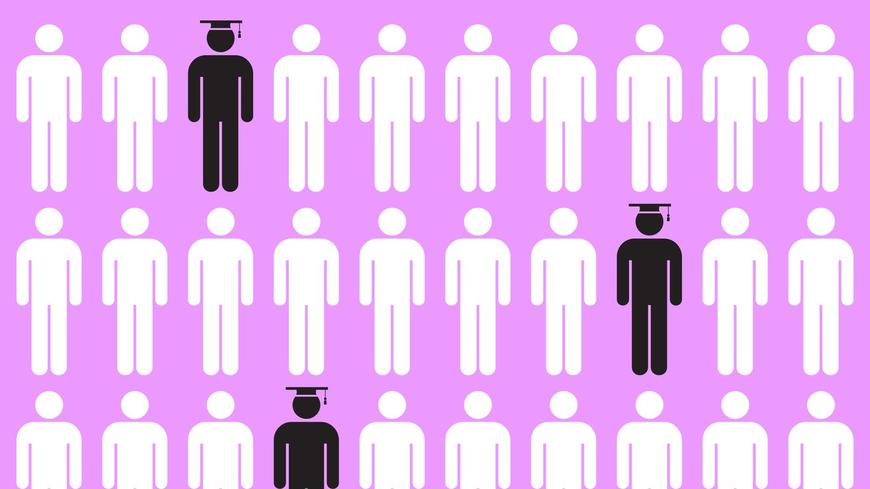
Affirmative action is so-called positive discrimination. In other words, it is a policy aimed at eliminating the consequences of racial discrimination or discrimination based on gender. The main idea of the policy is that people who have been discriminated in the past must have different rights and benefits at the present. All this is done to ensure that they have advantages. For example, minorities should be given great opportunities to move up the career ladder, receive a wage premium, scholarships at universities, financial assistance, etc.
For the first time, the term "Affirmative action" was used by President Kennedy in 1961, calling the method of combating discrimination, which, despite the laws on civil rights and constitutional guarantees, continued to exist and spread. In one of his presidential decrees, Kennedy introduced the Affirmative action into employment practices, establishing that the employer should not take into account the origin, color, racial and religious affiliation of his potential employee when the latter is employed. This further developed by President Johnson.
It should be said that the policy "Affirmative action" has become the cause of many disputes, court cases, and still there are a lot of contradictions around it. In some states, she enjoys the support of the population, while the inhabitants of some others - California, Washington, Nebraska, Michigan - on the contrary, are happy that they have achieved its abolition (Pojman).
One of the main arguments among the opponents of the "Affirmative action" policy is that in fact the programs of this policy rarely help the truly discriminated and through the establishment of quotas cause discrimination of other groups.
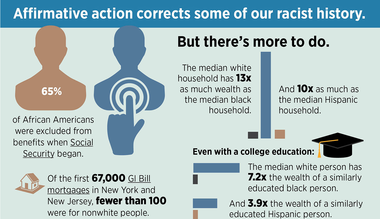
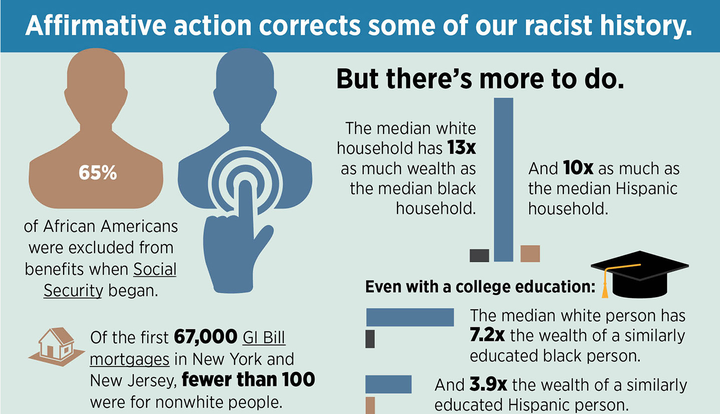
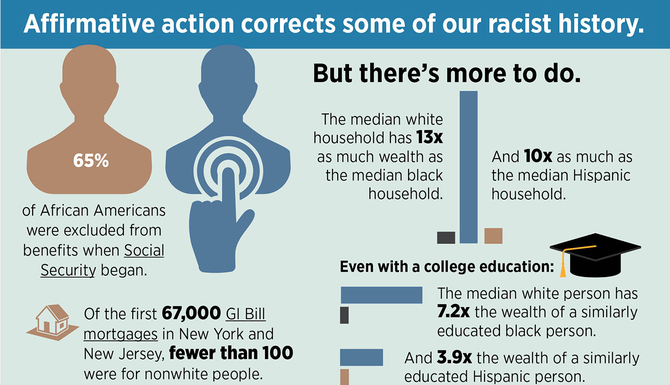
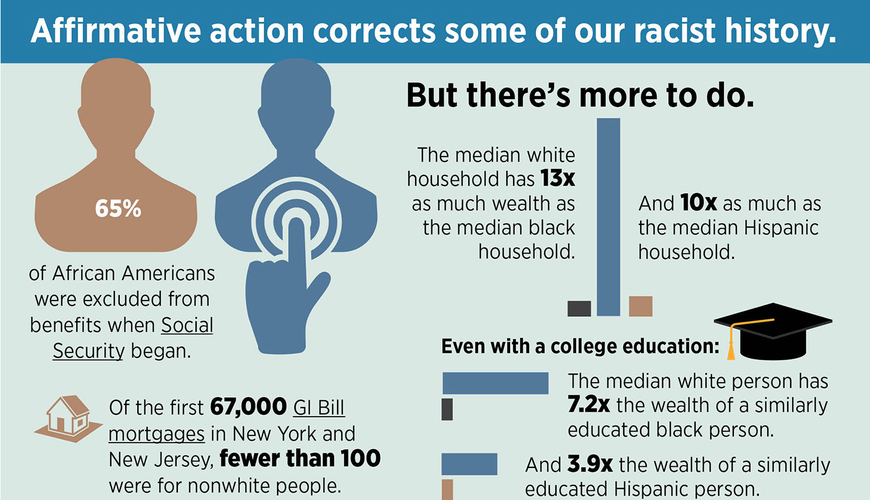
In some universities, so-called "affirmative action bake sales" suits in protest against the "Affirmative action" policy, where prices for homemade cakes depend on the ethnic and gender identity of the buyer.
Due to the fact that the policy "Affirmative action" is ambiguously perceived in different states, which to this day leads to discussions and legal proceedings of various kinds, this issue is likely to remain essential in the United States for many years to come.
In his work, Pojman outlined nine arguments against the "Strong positive action". He defines this regime as unfairly discrediting innocent people, which in the past was treated by Pojman himself. Naturally, this regime differs from Weak Affirmative Action which, in contrast to Strong Positive Actions, aims to encourage, not discriminate, society. Pojman did not agree with this policy and therefore opposed the Strong Affirmative Action, trying to prove that both politicians are not true. He regarded the policy of positive actions as racist and sexist because he was directed against White Males (Pojman).
Discrimination and the encouragement of anyone else's surplus are also not good, because both concepts violate people's freedom and directly affect their lives and worldview.
Before we start to analyze the arguments of Pojman, we need to define in more detail certain concepts (Pojman).
For example, under a Weak Positive Action, he means a policy that improves people's opportunities for social good, if they are in a situation of excrescence. This policy includes advertising, improving living conditions for people who were discriminated against earlier. But the goal of this policy is the ability to compete on an equal footing but in no way achieving equal results.
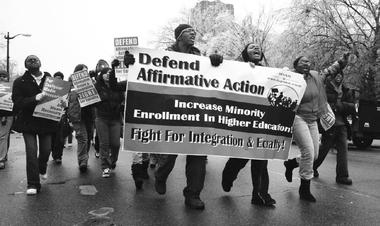
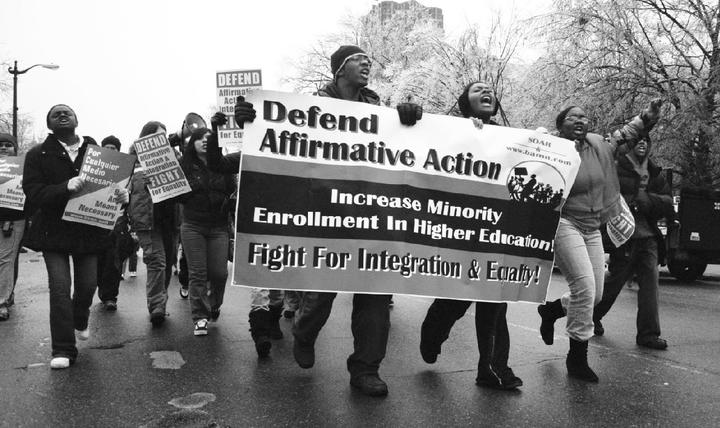
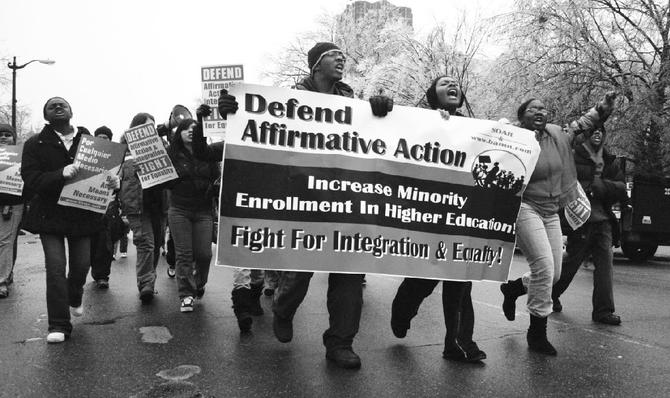
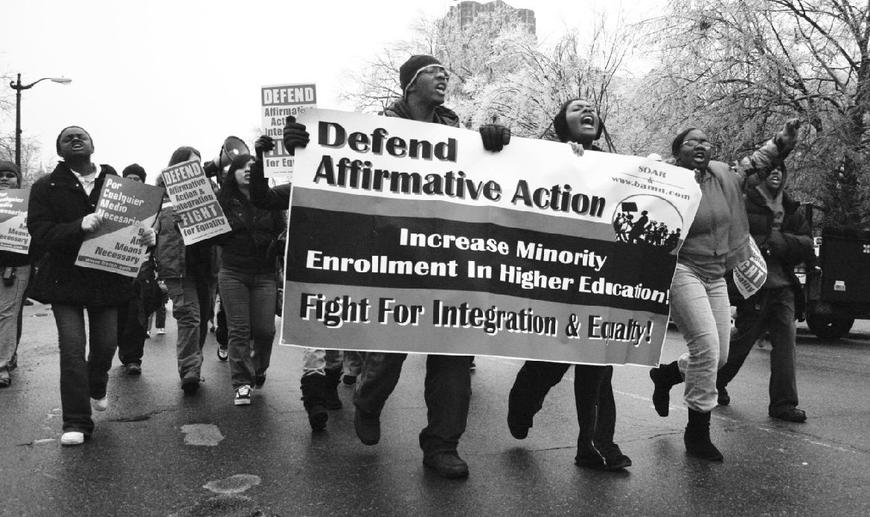
Under the Strong Affirmative Action is understood not a deception, but an indulgent attitude on the basis of race, that is, discrimination for equal results. Strong Affirmative Action is inverse discrimination. The essence of the policy is that it is right to make mistakes in order to correct the mistake.
I would like to analyze two Pojman`s arguments which I think are very important and interesting. I would like to analyze role models and compensation. It sounds simple if you do not start thinking more attentively about it. The first argument is about the need for role models. It is very simple that means we need models to imitate them. For example, we have to see more successful, more beautiful and better people for better living. Pojman disagrees with it, neither do I because people do not see better people they need to understand what life do they want for themselves and go to their dream. They do not need to imitate or trying to be someone else, people need to improve themselves only when they want to. Compensation is the second argument of Pojman. The argument is as follows, blacks have suffered very much from white. In this way, white must compensate for the harm caused to black people. However, this argument has a distorted concept of compensation. This leads to the problem of whether or not blacks should receive compensation in general. Compensation of its kind is usually individual and specific. Thus compensation to all the people is sought after how much each person was offended to varying degrees, and compensation, in turn, is equal for all that is wrong and distorted (Pojman).
So, the problem of Weak Positive Actions is that it easily passes into a Strong Positive Action. There is reverse discrimination and as a result - inefficiency. Pojman says that no one can receive desirable compensation because everyone suffered in a different way and the compensation is the same. Everyone suffers his own way that is why compensation must be unique for different people.
Attached file: Why affirmative action is immoral.doc
Click download to get access to a full version of the paper




The opposite point of view on policy "Affirmative action" is expressed by the national correspondent for The Atlantic, Ta-Nehisi Coates.
At the beginning of his article The Case for Reparations, Coates told us the story of Clyde Ross, a man who tried to take a legitimate mortgage, but failed, because it was not possible for blacks to get it. Ross had a difficult childhood, full of oppression and outright abuse of his family. Allegedly because of tax arrears his fathers land with its cows, hogs, and mules were seized by the authorities, even favorite horse of Clyde Ross was taken away by a group of white men for a ridiculous price. In spite the boy was smart; he could not attend a more challenging school, because it was located far away, and a trip to the school bus was available only to white children. In fact, that was racial segregation. After Ross had served in the army, he moved to Chicago but got himself as he put it from one disorder to another (Coates). There he faced a mortgage problem and tried to cope with it. Ross had to buy a house by contract because of the impossibility of formalizing a legal mortgage, and that was a real robbery. In order not to lose his house and at least somehow support his family, Ross got three jobs.
With the help of the Ross’ story, Ta-Nehisi Coates wants to convince the public in the need of compensation to such individuals, those people who were unjustly discriminated and whose rights were systematically violated and ignored. Since the adoption in 1964 of the law on civil rights, which prohibited racial discrimination in the United States, a half century has passed. On the one hand, since then, a great step forward has been taken in the position of blacks in America. On the other hand, de-facto, sometimes the echoes of such discrimination slip in some way today.
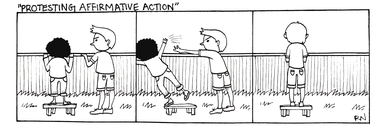
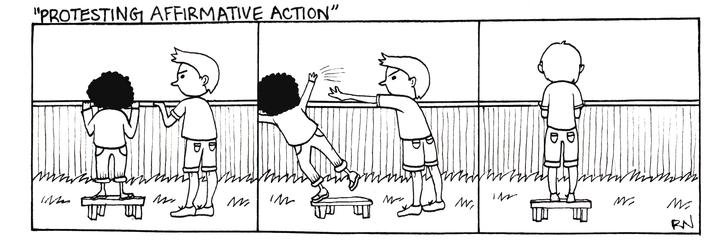
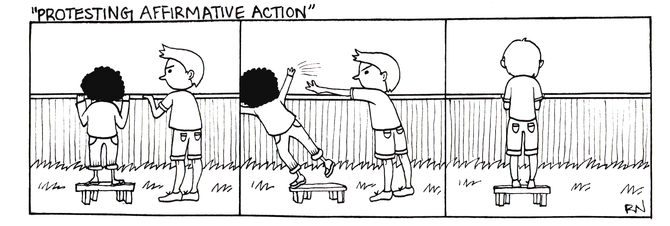
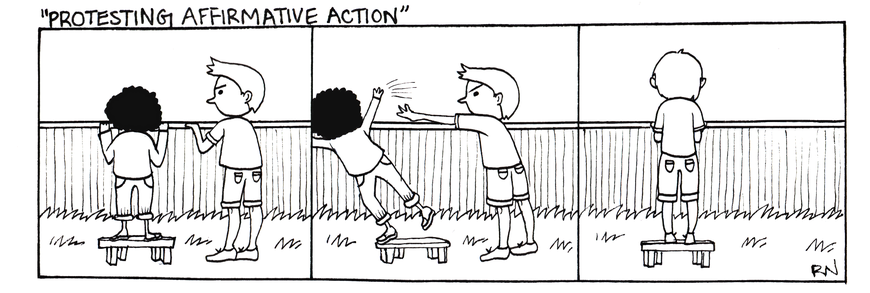
Some supporters of policy "Affirmative action" consider it as an important tool for overcoming racial discrimination in the country. This way African Americans would have access to higher professional positions and improved living conditions. Others supporters of this political measure believe that thanks to it, the final elimination of racial and gender inequality in the United States would be achieved, and a truly democratic state would be built.
In his work, Coates told us that the precise goals of affirmative action are ambiguous. He asks himself whether it was intended to correct the crimes inflicted on black people? Ta-Nehisi Coates believes that the confusion about the goals of policy Affirmative action”, as well as the inability to resist the specific history of a hopeless black shortcoming, refers to the origins of politics. And gives us as an example Johnson's statement, in which the politician told that there is no clear and firm definition of affirmative action, and it is all that people need to do to get results, but that does not necessarily include preferential treatment (Coates).
Coates insists that the damage caused earlier to the blacks must be reimbursed, but does not indicate in what quantity and by whom. He believes that repatriation should be paid for the purpose of national calculation, which will lead to spiritual renewal, and not just to compensate the damage attached to blacks in the past. In Coates view, the payment of reparations would mean a revolution in American consciousness and the reconciliation of America's self-esteem as a great democrat with the facts of its history (Coates).
To my mind, it only sounds good, but in practice it is impracticable. Of course, all the injustice which faced Ross, Lewis, Weatherspoon and thousands of others blacks is terrified; but what is done cannot be undone. People cant change their history, but now we are creating a new history, and, in my opinion, we must do our best to ensure that such injustice never again happens. Personally I believe that one should adhere to the policy of equality and respect for every person, regardless of his race and other criteria, and does not relate to people, based on the historical past of the group to which they belong; in this case, everything would be right. At this point the most sound and grounded argument were provided by Pojman, who defined the regime as unfairly discrediting innocent people, there should always be the way to resolve issues in a more democratic and peaceful manner.